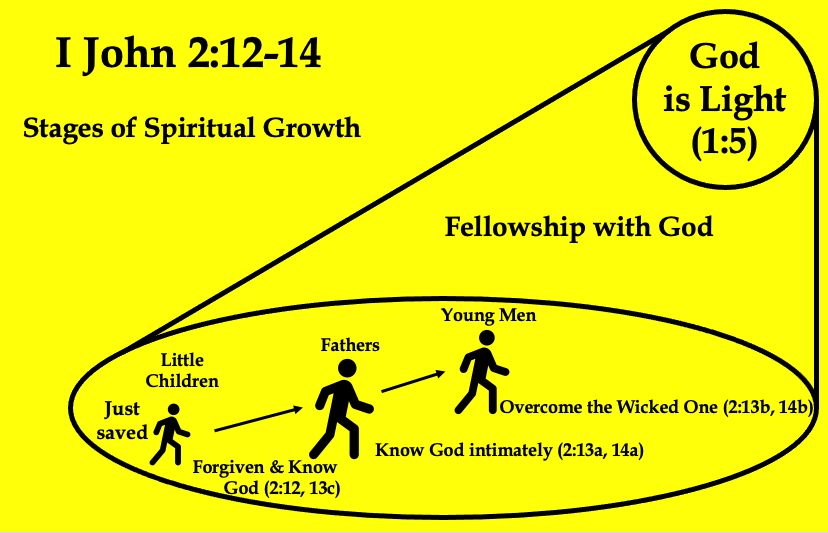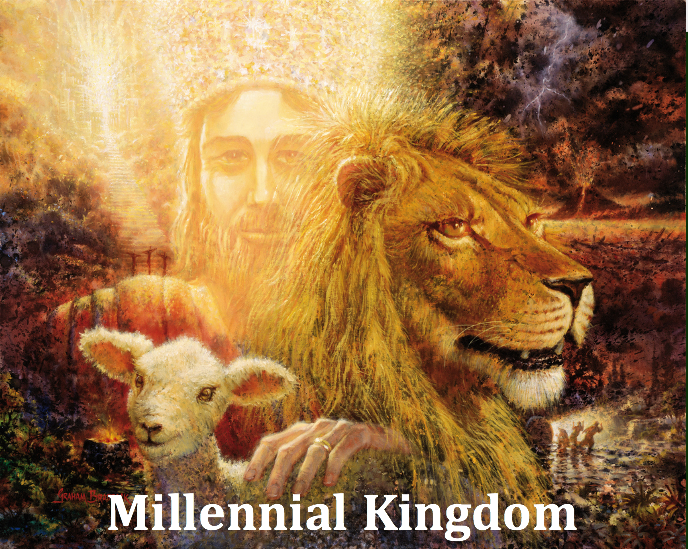“Little children, it is the last hour; and as you have heard that the Antichrist is coming, even now many antichrists have come, by which we know that it is the last hour.” I John 2:18
A few years ago, when I was at a travel agency’s office in a mall near Metro Manila in the Philippines, I met a Muslim man who was also there to purchase plane tickets. As I conversed with him, he made a statement that shocked me. He told me that America’s government leaders orchestrated the 9/11 bombings of the World Trade Center in New York City to cause the rest of the world to turn against Islam and its leaders. When he said this, I thought at first that he was joking. But he wasn’t. He was serious. He told me that there was no evidence whatsoever that the bombings of the WTC were linked to Osama Bin Laden and Islam. At that time, I did not understand how extensively Islam brainwashes its followers from an early age to believe such things.
Anderson illustrates this from the life of former NBA star Chris Jackson, now known as Mahmoud Abdul-Rauf: “He had broken the single game scoring record of Pistol Pete Maravich at LSU and went on to lead the Denver Nuggets for several years. Then he converted to Islam, changed his name, and refused to stand during our national anthem. He walked over and sat on the bench in protest. After several trades he is out of the NBA. He has built his own mosque in Louisiana where he leads prayer to Allah five times a day. In an interview he claimed there is no evidence that Osama is responsible for the New York tragedy. He said, ‘As a matter of fact, there were thirteen Jews found standing on top of a building filming the event, and I think the Jews are responsible.’ The interviewer looked at Chris Jackson and said, ‘You know, you’re crazy.’ And this American citizen said, ‘Well, that’s what they said of our great prophet Mohammed, and I am glad to identify with him.’” 1
With Islam growing in popularity around the world, we will see more people sharing Chris Jackson’s views. 2 Please understand I am not just talking about the refusal to stand for our national anthem or attributing the terrorism of 9/11 to America or the Jews. I am also speaking of Islamic teachings which reject three of the most important fundamentals of the Christian faith:
1. The Bible is the inerrant Word of God (Matt. 5:18; 2 Tim. 3:16-17; 2 Pet. 1:20-21). Islam teaches that the Judeo-Christian Bible is corrupt and untrustworthy except for the portions which support Islam. 3 The reason Muslims make this accusation is “because the Qur’an says it teaches the same thing as the Bible, confirming the Torah and the gospel, yet the teachings of the Bible are clearly different.” 4
2. The deity of Jesus Christ. Islam’s sacred Scripture, the Qur’an, denies that Jesus is the Son of God or God Himself. According to the Qur’an: “No son did Allah beget, nor is there any god along with Him” (Sura 23:91; cf. 25:2); it is blasphemous to say that Allah (God) is the Christ (Sura 5:19, 75); Allah cannot have a son because he has no consort or partner (Sura 4:171; 5:101). “Say: He is Allah, the One and Only; Allah, the Eternal, Absolute; He begetteth not, nor is He begotten; And there is none like unto Him.” (Sura 112:1-4). The Qur’an also teaches that anyone who says Allah has begotten a son will be driven to hell (Sura 19:86-88). According to Islam, since God cannot have a Son, He cannot be a Father. So, Islam also rejects the Trinity – one God in three Persons. 5
3. Christ’s death and resurrection. The Qur’an rejects that Jesus died on the cross and therefore rejects His resurrection. “That they said [in boast], ‘We killed Christ Jesus the son of Mary, the Messenger of Allah’; but they killed him not, nor crucified him, but so it was made to appear to them, and those who differ therein are full of doubts, with no [certain] knowledge, but only conjecture to follow, for of a surety they killed him not:” (Sura 4:157). 6
Should these Islamic teachings surprise us? Not if we have read the apostle John’s first century letter known as I John. We have already learned in our study of this epistle that there are different barriers to our fellowship with God: personal sin (1:5-2:2), an example of which is hatred for our Christian brothers or sisters (2:3-11), and the world (2:15-17). Now we will begin to look at a third major barrier to our fellowship: the Devil and his false teachers (2:18-27).
It is not surprising that John’s warning against the enticements of the world (2:15-17) is followed by a warning against the antichrists (2:18-27). These antichrists or false teachers were promoting a worldly lifestyle which would entice his readers no matter how spiritual they may have been (2:12-14).
John writes, “Little children, it is the last hour; and as you have heard that theAntichrist is coming, even now many antichrists have come, by which we know that it is the last hour.” (I John 2:18). Once again John addresses his readers as “little children” (paidia) which means “taught ones” 7 and can refer to “one who is open to instruction.” 8 His readers need to learn what he is about to reveal.
One of the signs that “the world is passing away” (2:17) is the appearance of false teaching or “antichrists” and “the Antichrist” (2:18). While the Greek word for “hour” (hōra)can refer to a part of a day (e.g., John 1:39; 4:6; 11:9), it also is used in reference to an undetermined length of time (e.g., John 2:4; 4:21, 23; 5:25, 28; 16:25; etc.). 9 The phrase “the last hour” refers to a climactic era in history between the First and Second Comings of Jesus Christ.
“Throughout the New Testament the writers regarded the present inter-advent age, after the Incarnation and before the Lord’s return for His own, as the last hour or the last days. This is the final period before the Lord Himself breaks into history again and raptures the church. Then the first stage of the new era will be judgment (the Tribulation), and the second stage, blessing. In the second stage, Jesus Christ will rule directly over human beings, first in the Millennium, and then in the new heavens and the new earth.” 10
John and the other authors of the New Testament believed Jesus Christ would return for His own in their lifetime (cf. Matt. 24:36-51; Luke 12:39-40; I Cor. 1:7; 15:51-52; Phil. 3:20; I Thess. 1:10; 4:13-5:11; Titus 2:13; Heb. 9:28; I Pet. 1:13; 2 Pet. 3:10; Jude 1:21), thus John refers to this period of time before Christ’s return as “the last hour.” Two thousand years later Christ still has not returned for His church. Does this mean the Bible has errors because the writers of the New Testament believed Jesus would return in their lifetimes, and they were obviously wrong?
Zane Hodges points out in his commentary on 1 John, that the Bible predicted that scoffers would come “in the last days” who would deride believers for their doctrine that Christ could come at any moment 11 like “a thief in the night” (2 Pet 3:3-4, 10). “3 Knowing this first: that scoffers will come in the last days, walking according to their own lusts, 4 and saying, ‘Where is the promise of His coming? For since the fathers fell asleep, all things continue as they were from the beginning of creation.’” (2 Pet. 3:3-4). Peter notes that the coming of “scoffers” is a sign of “the last days.” This is similar to what John is saying in I John 2:18-19. The appearance of “antichrists” or false teachers is indicative of “the last hour” leading up to the manifestation of the ultimate “Antichrist” who will claim to be God and rule the world during the last three and a half years of the Tribulation period (Dan. 9:27; Matt. 24:15-22; 2 Thess. 2:3-4; Rev. 13:1-10).
The skeptics Peter mentions erroneously assume that “all” the processes we observe in our present world are the way “things” have always been (2 Pet. 3:4). This is also known as uniformitarianism. Such false assumptions overlook the fact that God has supernaturally intervened in the past when He spoke the universe into existence (2 Pet. 3:5; cf. Gen 1-2) and judged humanity through a global flood (2 Pet. 3:6; Gen. 6-8). The “same word” that supernaturally intervened in the past will also intervene in the future when God destroys the present heavens and earth with fire (3 Pet. 3:7).
Peter responds to these skeptics who doubted Christ’s coming by saying God does not view time as we do. “But, beloved, do not forget this one thing, that with the Lord one day is as a thousand years, and a thousand years as one day.” (2 Pet. 3:8). God is not limited to our linear view of time since He created time. Time for God may be a different dimension. 12 So, when Peter refers to “the last days” and John speaks of “the last hour,” they are not in conflict with God’s view of time. An hour or day to God may be two thousand years for us.
John and his readers knew that “the Antichrist” was destined to appear on the world stage more than three-and one-half years prior to Christ’s return to earth to set up His kingdom. His readers now needed to be aware of the “many antichrists” who had already appeared. The Greek compound word translated “antichrist” (antichristos)means “against” (anti) + “Christ” (christos). These are people who oppose Jesus Christ and His teachings, or they claim to be the Christ or Messiah. 13
“An ‘antichrist’ opposes and replaces Christ with the goal of distracting and derailing Christians from pursuing Christ.” 14
Speaking of these antichrists, John writes, “They went out from us, but they were not of us; for if they had been of us, they would have continued with us; but they went out that they might be made manifest, that none of them were of us.” (I John 2:19). The word “us” (hēmōn) is used four times in this verse and most likely refers to the apostolic eyewitnesses (cf. 1:4-5; 4:6). It stands in contrast to the “you” in I John 2:20-21 which refers to John’s readers. Here we see for the first time the “we”–“you”–“us” contrast (cf. I John 4:4-6). 15 John wants his readers to know that these false teachers defected from the apostolic churches of Jerusalem and Judea (“They went out from us”) and sought to spread deception among John’s Gentile readers.
“It does not make sense that the false teachers had left the churches to which the readers belonged. If they had, how were they still a problem? On the other hand, if, like the legalists of Acts 15, they had seceded from the apostolic churches of Jerusalem and Judea, then they were a particular threat to the readers because they came to them claiming roots in the soil out of which Christianity arose. Thus, John was eager to deny any connection with them.” 16
John wants his readers to know the antichrists were not in agreement with apostolic teaching (“they were not of us… none of them were of us”). If they had agreed (“if they had been of us”), they “would have continued with the” apostles (“us”) and their teaching. But since God’s truth could not be changed among the apostles, these false teachers departed. They were unwilling to submit to the final authority of God’s Word, so they went out to deceive John’s readers by claiming to be from the same fellowship as the apostles. John wants his readers to know this so they will not listen to them and be deceived.
Were these antichrists believers in Jesus? It is possible they were saved and then denied the truth they once believed (cf. I Tim. 1:18-20; 2 Tim. 2:17-18). A person can still be saved after falling away from the faith. We can lose our faith, but God never loses us. If He did, then Jesus would have failed to do the Father’s will (John 6:38-39).
John’s readers were not defenseless against these antichrists: “But you have an anointing from the Holy One, and you know all things.” (I John 2:20). The “anointing from the Holy One” is God the Holy Spirit since we are told that the anointing “teaches” (I John 2:27). This strongly suggests that the anointing is a Person. 17 Christ promised that the Person of the Holy Spirit would “teach” His disciples “all things” (John 14:26; cf. 16:13-14).
“’The anointing’ is not some special gift shared by only elite clergy. John is addressing spiritual ‘children’ (2:18). Every Christian has the anointing: the internal teaching ministry of the Holy Spirit who illuminates the believer’s mind to understand and apply God’s truth, as well as to detect deception. Paul refers to it as having the ‘mind of Christ’ (1 Cor 2:16).” 18
When does one receive this anointing? The moment he or she believes in Jesus for His gift of eternal life (John 7:37-39; cf. Acts 10:43-45; 19:2; I Cor. 12:13; Gal. 3:2, 26-27; Ephes. 1:13-14). God the Holy Spirit takes up residence in a person’s body when he or she comes to faith in Christ (I Cor. 6:19-20).
The result of this anointing is “you know all things.” The Holy Spirit enables believers to adequately know and understand Christian truth. The antichrists may have told John’s readers that they or their church leaders lacked a special knowledge which only they could give them.
John assures them they had adequate instruction in the truth of God. “I have not written to you because you do not know the truth, but because you know it, and that no lie is of the truth.” (I John 2:21). John does not write to his readers because they are ignorant of the truth as the antichrists may have told them. The apostle writes to them precisely because they do “know” the truth and they know “that no lie is of the truth.” This suggests that the false teachers may have told John’s readers or the church leaders that their understanding of the truth was inadequate, and they needed to be enlightened by them. But John says, “You already know all things. You know the truth. And you know that the truth is never to be confused with a lie. So, there is no need for any of you to listen to these false teachers. Your church leaders are competent to teach the whole body of Christian truth.” 19
It is important to recognize that the word John uses for “know” (oida) in I John 2:20-21 is different than the experiential knowledge (ginōskō) he spoke of earlier (2:3-4, 12-14). In the New Testament the word oida almost always refers to “direct insight into spiritual or divine truth” although it may not be truth that has been experienced yet. 20 “This truth is the result of the teaching and convicting ministry of the Holy Spirit.” 21
The key to resisting false teaching is to “know the truth” of God’s Word and depend upon the Holy Spirit to do what the Word says. Jesus said, “However, when He, the Spirit of truth, has come, He will guide you into all truth; for He will not speak on His own authority, but whatever He hears He will speak; and He will tell you things to come.” (John 16:13). God the Holy Spirit gives us direction from the Word of God. “The Spirit of truth” guides us “into all truth.” The Spirit communicates to us through the written Word which is the truth (John 17:17). Walking in the Spirit (Gal. 5:16) means to depend on the Spirit to do what the Word says. We are to depend upon the anointing of the Holy Spirit to help us understand the Word and obey it as we expose ourselves to it. So, as we become more familiar with the truth of the Bible, we can detect the deceptions of the antichrists by contrast.
There are some who try to cast doubt on the truth of the Bible to make the church more open to doctrinal deviations. For example, Islam does this by telling Christians that the New Testament was corrupted by the apostle Paul and therefore is no longer trustworthy. 22 The Jehovah Witnesses have retranslated John 1:1 in their New World Translation to say that the Word, Jesus Christ, is “a god” instead of “God.” 23 John would have had zero tolerance with anyone who praises a false idea as “insightful” or “worthy of dialogue” no matter how far it is from the truth of God’s Word. 24 Christians today also need to have the same zero tolerance for anyone who rejects or distorts the truth of God’s Word.
What lies will these antichrists teach? “22 Who is a liar but he who denies that Jesus is the Christ? He is antichrist who denies the Father and the Son. 23 Whoever denies the Son does not have the Father either; he who acknowledges the Son has the Father also.” (I John 2:22-23). The main lie that John has in mind is the denial “that Jesus is the Christ.” For the apostle John, belief “that Jesus is the Christ” is saving: “Whoever believes that Jesus is the Christ is born of God.” (I John 5:1a; cf. John 20:30-31).
Believing “that Jesus is the Christ” in John’s thought means to believe that Jesus is the One Who guarantees a future resurrection and never-ending life to all who believe in Him (John 11:25-27). The person who denies this truth about Jesus “is a liar” who undermines the very basis on which anyone is saved. 25 Hence, these false teachers were denying that John’s readers had eternal life (cf. I John 2:25). If Jesus is not the Christ, as the antichrists taught, then John’s readers had no assurance that they possessed eternal life by believing in Christ. If their assurance disintegrated, so would their fellowship with God. 26
Denying that Jesus is the Christ is also a denial of “the Father and the Son” (2:22b) because “whoever denies the Son does not have the Father either; he who acknowledges the Son has the Father also.” (2:23). To deny One is to deny the other and to acknowledge One is to acknowledge the other because Jesus perfectly reflects God the Father. Both the Father and the Son are God.
If we apply this lie detector test to Islam, we can quickly see that Islam denies that Jesus is the Christ, the Son of God, and it also denies that God is the Father (see previous comments). According to I John 2:18-23, what do we learn about any religious system that denies Jesus is the Christ, the Son of God, and denies God is the Father? First, we learn that it is a lie. And second, it is from the Antichrist. To put it bluntly, any religious system that denies Jesus is the Christ, the Son of God, and denies God is the Father is from the Devil. 27
Prayer: Heavenly Father, thank You for providing tests to help us discern truth from error. We are living in a world that is filled with deception and false teachers who claim to be Christians but deny that Jesus is the Christ Who guarantees a future resurrection and never-ending life to all who believe in Him. Thank You for the anointing of the Holy Spirit which enables us to understand and apply the truth of Your Word, and to detect deception. Any religious system that denies Jesus is the Christ, the Son of God, and denies God is the Father is a lie and is from Satan. Grant us the courage and discernment to apply these truths from I John to our daily lives. In the mighty name of the Lord Jesus Christ, we pray. Amen.
ENDNOTES:
1. David R. Anderson, Maximum Joy: I John – Relationship or Fellowship? (Grace Theology Press, 2013 Kindle Edition), pg. 119.
2. An April 2, 2015, Pew Research Report entitled, “The Future of World Religions: Population Growth Projections, 2010-2050” at https://www.pewresearch.org states that Islam is projected to grow faster than any other religion. “Between 2010 and 2050, the world’s total population is expected to rise to 9.3 billion, a 35% increase. Over that same period, Muslims – a comparatively youthful population with high fertility rates – are projected to increase by 73%. The number of Christians also is projected to rise, but more slowly, at about the same rate (35%) as the global population overall. As a result, according to the Pew Research projections, by 2050 there will be near parity between Muslims (2.8 billion, or 30% of the population) and Christians (2.9 billion, or 31%), possibly for the first time in history.”
3. See Nabeel Qureshi, No God but One: Allah or Jesus? (Grand Rapids: Zondervan, 2016 Kindle Edition), pp. 117-118 and Daniel Janosik, THE GUIDE TO ANSWERING ISLAM: What Every Christian Needs to Know About Islam and the Rise of Radical Islam (Christian Publishing House, 2019 Kindle Edition), pp. 7, 34. When witnessing to a Muslim, show them that the Bible claims to be the perfect Word of God (Matthew 5:18; 2 Timothy 3:16-17; 2 Peter 1:20-21), encouraging them to read it. If Muslims say they cannot read the Bible because it is corrupted, remind them that the Quran promises, “there is no change to the word of God” (Sura 10:64). If God can preserve the Qur’an, He can preserve the Bible which the Qur’an encourages Muslims to read (cf. Sura 3:3; 5:36-38, 66; 12:111; 20:37; 29:46; 35:31; and 10:94). Surely Allah would not command his people to read the Bible if it was corrupted. In Sura 10:94, the Qur’an tells Muslims that if they are in doubt about anything in the Scriptures, they should ask those who have received the book that was given before, such as the Tauret (the books of Moses), the Zabur (the psalms of David), and the Injil (the Gospels). – See Janosik, pg. 44.
4. Qureshi, pg. 117.
5. When witnessing to a Muslim about the deity of Christ, explain to them what the term “Son of God” means in its historic and biblical context. Never does it mean that God has a wife and produces offspring as Muslims believe. “Son of God” is an analogical term that indicates the relationship that the Second Person of the Trinity has with the Father and the Holy Spirit. Jesus is not inferior to the Father; for He claims that He and the Father are one (John 10:30), as well as if they have seen the Son then they have also seen the Father (John 14:9). Jesus also performed unique miracles that confirmed that He was the Son of God (John 20:31). Thus, the Son is not “another” god, but rather the second Person of the One God. In addition, Christians should realize that the reference to Jesus as the “Christ” is a title given to the heavenly, eternal Son Who is equal to God the Father (John 5:18-24). Christians should also explain the limitations that the Son took on Himself in order to become a Man. If He did not become fully Man (John 1:14; I Timothy 2:5), then He could not truly die in our place and bring us redemption from our sins (Phil. 2:5-8) (Janosik, pg. 271).
6. When witnessing to a Muslim about the death and resurrection of Christ, Christians need to understand that from an historical point of view, the claim by Muslims that Jesus Christ was not crucified was made 600 years after the event and has no historical support from the first century. (Janosik, pg. 284). Perhaps one of the best ways to help Muslims understand the historicity of the resurrection of Jesus Christ would be to use Dr. Gary Habermas’ “minimal facts” argument (Janosik, pg. 284 cites Gary Habermas and Mike Licona, The Case for the Resurrection [Kregel, 2004]). The five essential facts to relate are:
a. Jesus died by crucifixion. Most historians accept the fact that a man named Jesus Christ lived in the first century and died by crucifixion.
b. His disciples believed that He rose and appeared to them. Whether or not Jesus actually rose from the dead, His disciples were so persuaded of this fact that they spent the rest of their lives telling this story. None of them ever denied what they had witnessed firsthand.
c. The church persecutor Paul was suddenly changed. The apostle Paul first tried to destroy the early church, but after his encounter with the risen Jesus Christ he became the chief evangelist for the church.
d. The skeptic James, brother of Jesus, was suddenly changed. Something transforming happened to James that turned him completely around so that he became one of the great leaders of the early church. Experiencing his half-brother, Jesus, resurrected from the dead could do this.
e. The tomb was empty. There have been many attempts to discount this fact, but they all fall far short of the simple explanation that Jesus, who had been crucified and died, had risen from the dead and exited the tomb (Janosik, pg. 284).
7. Tom Constable, Notes on I John, 2022 Edition, pp. 45, 55.
8. Walter Bauer, A Greek-English Lexicon of the New Testament and Other Early Christian Literature: Third Edition (BDAG) revised and edited by Frederick William Danker (Chicago: University of Chicago Press, 2000 Kindle Edition), pg. 749.
9. Zane C. Hodges; Robert Wilkin; J. Bond; Gary Derickson; Brad Doskocil; Dwight Hunt; Shawn Leach; The Grace New Testament Commentary: Revised Edition (Grace Evangelical Society, Kindle Edition, 2019), pg. 592.
10. Constable, pp. 55-56.
11. Anderson, pg. 121 cites Zane C. Hodges, The Epistles of John: Walking in the Light of God’s Love (Irving, TX: Grace Evangelical Society, 1999), pp. 106-107.
12. Anderson, pp. 122-123 cites Hugh Ross, The Creator and the Comos (Colorado Springs: NavPress, 1993), pg. 76.
13. Constable, pg. 56.
14. Tony Evans, CSB Bibles by Holman, The Tony Evans Bible Commentary (B & H Publishing Group, Kindle Edition, 2019), pg. 2940.
15. Hodges, The Grace New Testament Commentary, pg. 593.
16. Zane C. Hodges, The Bible Knowledge Commentary Epistles and Prophecy, Editors John F. Walvoord and Roy B. Zuck (David C. Cook, 2018 Kindle Edition), Kindle Location 3719 to 3723.
17. Ibid., Kindle Location 3728.
18. Evans, pg. 2940.
19. Hodges, The Grace New Testament Commentary, pg. 593.
20. Anderson, pg. 124.
21. Ibid.
22. Qureshi, pp. 196-198.
23. The translation of John 1:1c, “And the Word was God” (kai Theós ēn ho Lógos), is based on the Greek rule of grammar (Colwell’s rule) which states that the definite predicate nominative, “God” (Theós), in front of the verb “was” (ēn) will not have the article. See E. C. Colwell, “A Definite Rule for the Use of the Article in the Greek New Testament,” Journal of Biblical Literature 52 (1933), pp. 12-21. In Greek, word endings determine the subject. But since both “Word” (Logos) and “God” (Theos) have the same ending, John added the article (ho) to Logos to identify it as the subject of the sentence.
24. Hodges, The Grace New Testament Commentary, pg. 593.
25. Ibid.
26. Ibid.
27. Anderson, pp. 124-15.











